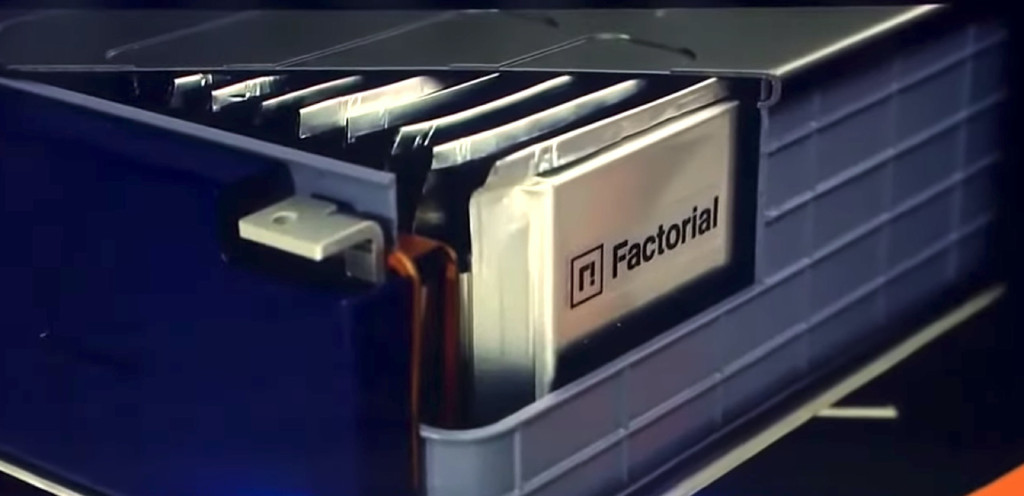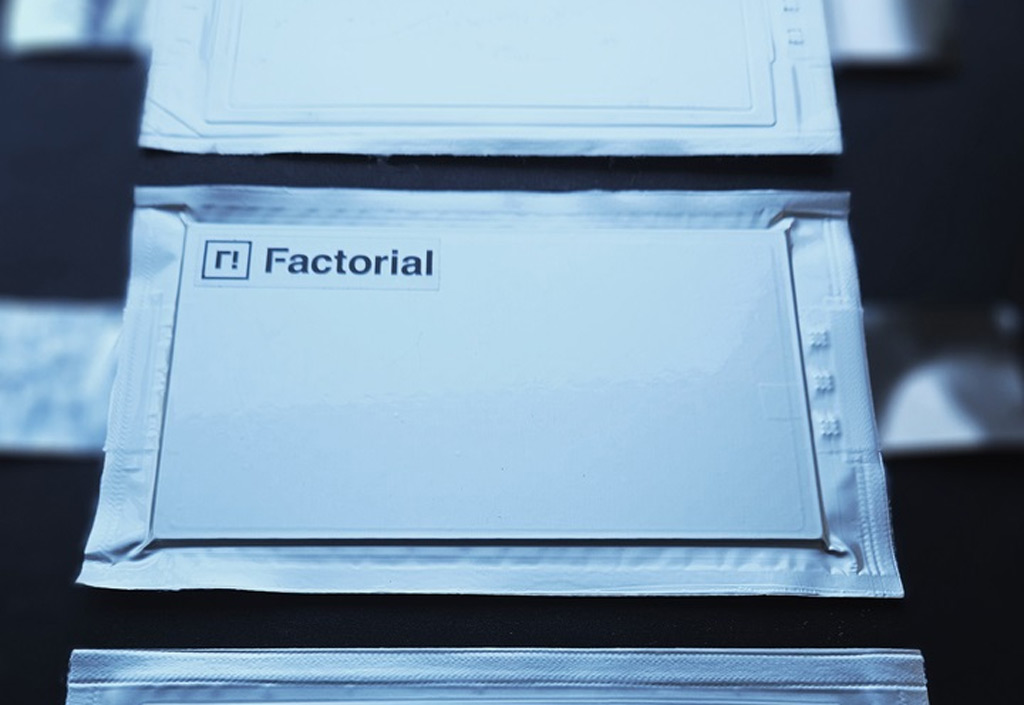Massachusetts-Based Factorial Revolutionizes Solid-State Battery Cell Manufacturing for Electric Vehicles
Factorial, a Massachusetts-based company, has unveiled a groundbreaking process for producing solid-state battery cells suitable for electric vehicles. These cells, sized for automotive use, are on the brink of mass production.
The company has been supplying test cells to major automakers and recently announced a significant milestone. It has successfully scaled sample cells to a 40-amp-hour capacity, making them “automotive-relevant.” Factorial is utilizing a dry-coating process that not only maximizes energy density but also reduces operational costs and minimizes the environmental impact of battery production.

Factorial solid-state cells
The innovative dry coating process developed by Factorial eliminates hazardous solvents and significantly reduces energy consumption compared to traditional manufacturing methods. Furthermore, the solid-state chemistry eliminates the need for a formation process used in liquid-electrolyte chemistries, further enhancing energy efficiency.
Factorial has successfully implemented the dry coating process using customized equipment at its Massachusetts development center. This achievement serves as a blueprint for production at dedicated battery factories, including the one announced by Factorial for 2023. In terms of durability, Factorial’s smaller prototype cells have already endured over 2,000 charge and discharge cycles.

Rendering of Dodge Charger Daytona test bed for Factorial solid-state battery cells
Impressively, Factorial has garnered investments from industry giants like Hyundai, Mercedes-Benz, and Stellantis. Collaborative efforts with Mercedes have led to cells that could potentially increase range by up to 80% due to enhanced energy density. Additionally, Stellantis is set to test Factorial’s solid-state cells in a fleet of Dodge Charger Daytona EVs starting in 2026.
While other automakers are also exploring solid-state batteries, Factorial appears to be at the forefront of manufacturing them in commercially significant volumes. Toyota, for example, plans to commence production in 2026, albeit on a smaller scale compared to Factorial’s ambitious endeavors.

